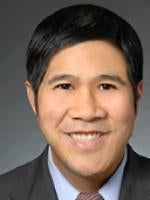A recent opinion by the US District Court for the Southern District of New York denying a motion to dismiss “short-swing” profit claims under Section 16(b) of the Securities Exchange Act of 1934 against members of an alleged greater than 10 percent group under Section 13(d) provided some important guidance for securities practitioners. The plaintiff in Greenberg v. Hudson Bay Master Fund Ltd., 2015 BL 140759, S.D.N.Y., 14 cv 5226 (DLC), (May, 12 2015), alleged that the defendants, shareholders of WPCS International Inc., had formed a Section 13(d) “group” that collectively owned more than 10 percent of WPCS common stock and then realized short-swing profits within a six –month period in violation of Section 16(b).
The plaintiff inferred the formation of the group through (1) the defendants’ participation in a private financing transaction involving WPCS and (2) their subsequent sale of a jointly owned business to WPCS. In denying the defendants’ motion to dismiss, the District Court said that a group could be found to have been formed by the shareholders in connection with their sale of a jointly owned business to WPCS. However, the District Court also ruled that the defendants’ participation in the same private financing was not, in and of itself, an adequate basis to find the existence of a group. The District Court noted that the use of a single agreement to cover all purchasers in a private placement is not unusual and that courts have routinely rejected the argument that transaction documents granting investors parallel rights and obligations create an inference that a group was formed. The District Court emphasized specific provisions included in the transaction documents asserting that the rights of the parties were separate and that the use of a single document was for the convenience of the issuer and should not create a presumption that the buyers were acting in concert.
The defendants had argued that, even if they were deemed members of a group with one another, the existence in warrants and convertible notes of “9.99 percent blocker provisions” (i.e., a provision that prohibits conversion/exercise to the extent that the holder would beneficially own more than 9.99 percent of the issuer’s common stock upon such conversion/exercise) should prevent any presumptive group from collectively owning greater than 9.99 percent of the WPCS common stock. The District Court rejected that argument, noting that while the blocker provision explicitly restricted conversion/exercise to the extent the ownership of the holder and its “affiliates” exceeded 9.99 percent, it did not include language requiring the holder to count shares held by its Section 13(d) group members in the 9.99 percent calculation. Finally, defendant Iroquois Master Fund Ltd. argued that it could not be liable under Section 16(b) because its investment advisor, and not the Iroquois fund itself, is the sole beneficial owner of the shares held by the fund. Since registered investment advisors are generally exempt from Section 16(b) liability, Iroquois argued that there should be no liability in respect of trades made by the Iroquois fund. The District Court rejected this position, citing the US Court of Appeals for the Second Circuit decisions in Huppe v. WPCS Intern. Inc. and Analytical Surveys Inc. v. Tonga Partners L.P. both of which cases rejected the argument that a limited partnership could avoid Section 16(b) liability by delegating all voting and investment power to registered investment advisors.
The Greenberg v. Hudson Bay opinion provides several important insights:
-
while participation in private placements with other investors does not in and of itself create a Section 13(d) group, it is advisable to include language in the transaction documents expressly providing that the obligations of the parties are several and not joint and that no action taken by a buyer pursuant to such agreements shall be deemed to create a group or create a presumption that the buyers are in any way acting in concert;
-
it is essential for blocker provisions to expressly apply the conversion cap with other parties that may be deemed to be a member of a Section 13(d) group with the applicable holder; and
-
hedge funds cannot evade Section 16 obligations and liabilities by claiming that they have divested themselves of voting and dispositive power over shares in favor of their registered general partners or investment advisors; the funds themselves will generally be deemed beneficial owners of the shares that they hold.
Greenberg v. Hudson Bay Master Fund Ltd., 2015 BL 140759, S.D.N.Y., 14 cv 5226 (DLC), (May, 12 2015)
See “Form BE-10 Filing Deadline Looms” in the Private Investment Funds section.




 />i
/>i

